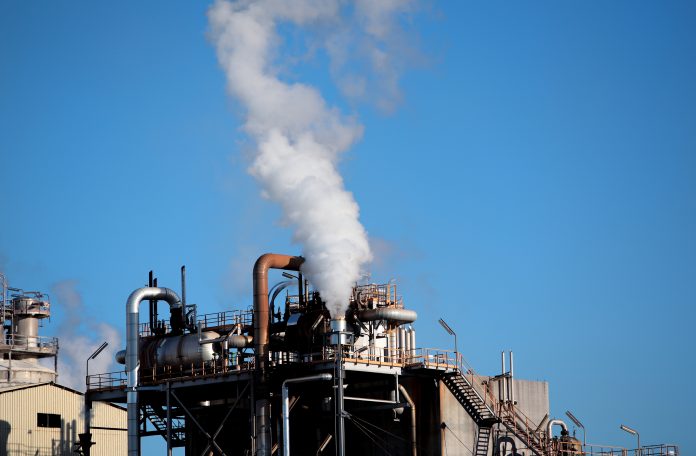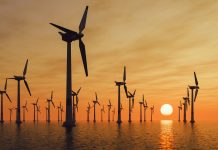More than 120 governments have announced their commitments to achieve net zero targets by the middle of this century, so will this become a central focus in 2021?
Later this month energy and climate leaders from top economies prepare to attend the International Energy Agency Net Zero Summit.
The Net Zero Summit, which will be co-hosted by the Executive Director of the International Energy Agency, Dr. Fatih Birol and COP26 President Alok Sharma, will be a critical milestone on the road to the COP26 in Glasgow in November.
The Summit will provide an opportunity for dialogue between the world’s major economies and the goal of the summit is to establish a path to accelerate the momentum behind clean energy and examine how countries can work together more effectively to reduce their greenhouse gas emissions to net zero in line with shared international goals.
As governments focus on accelerating clean energy transitions, they all accept the economic and human impact of these policies. Clean energy transitions will affect people’s livelihoods and whilst they will offer new careers and create new jobs, they will also affect workers and communities that are reliant on industries and fuels which are set to decline.
For this reason, on March 15th, the IEA has convened an online meeting with a diverse and influential group of leaders from government and civil society to address these critical issues within a Global Commission on People-Centred Clean Energy Transitions.
It is widely accepted that a tremendous amount of work is still needed to turn ambitions into reality, as long-term targets by themselves will not be enough, as the recent rebound in global carbon emissions shows.
The COVID-19 crisis triggered the largest annual drop in global energy-related carbon dioxide emissions since the Second World War, but the overall decline of about 6% did not have any effect whatsoever on the CO2 levels in earth’s atmosphere, which gives credibility to climate sceptic’s position, that variances in man-made CO2 emissions do not warm the planet because they represent only 0.00016% of the total gases in our atmosphere. Whilst it is true that CO2 makes up just 0.04% of our atmosphere and just 0.03% of the overall CO2 emissions are due to human activity, the scientific consensus asserts that increases in man-made CO2 are the primary force responsible for global warming and form the scientific basis for our climate change and net zero agendas.
After hitting a low in April 2020, global emissions rebounded strongly and rose above 2019 levels in December. The latest data show that global emissions were 2%, or 60 million tonnes, higher in December 2020 than they were in the same month a year earlier. Major economies led the resurgence as a pick-up in economic activity pushed energy demand higher and significant policies measures to boost clean energy were lacking. Many economies are now seeing emissions climbing above pre-crisis levels.
The rebound in global carbon emissions toward the end of last year is a stark warning that not enough is being done to accelerate clean energy transitions worldwide.
Energy related CO2 emissions have fallen continuously since their peak in 2013, thanks to the expansion of renewable energy, the increase and restart of some nuclear power plants and energy efficiency gains. Reliance on fossil fuels has also declined, but remains high at nearly 90% of energy supply.
This means in the 40 years since technologies such as wind turbines and solar panels were adopted on a commercial scale, the renewables sector has only managed to reduce global demand in fossil fuels by around 10%. This is the main cause of concern from experts, who have warned that the 2050 net zero targets will require a fundamental change to not only our attitude towards energy, but our economies, lifestyles and outlook as a whole.
The World Economic Forum is a very influential organisation at the forefront of thinking on the global climate agenda, but it has come under severe criticism over the last two years for promoting an anti-capitalist agenda to solve our climate crisis, rather than an agenda focused on technologies and strategies aimed at limiting the causes of climate change.
At a virtual meeting in June 2020 hosted by the World Economic Forum, some of the planet’s most powerful business leaders, government officials and activists announced a proposal to “reset” the global economy. Instead of traditional capitalism, the high-profile group said the world should adopt more socialistic policies, such as wealth taxes, additional regulations and massive Green New Deal-like government programs.
“Every country, from the United States to China, must participate, and every industry, from oil and gas to tech, must be transformed,” wrote Klaus Schwab, the founder and executive chairman of the World Economic Forum, in an article published on WEF’s website. “In short, we need a ‘Great Reset’ of capitalism”. Schwab also said that all aspects of our societies and economies must be revamped, from education to social contracts and working conditions.
In reality what the WEF is proposing is a form of global socialism where capitalism, personal possessions and wealth are in effect outlawed, which is alienating many strong supporters of the current climate change agenda and further strengthening the claims by climate sceptics that climate change is simply being used as a fear mongering tactic to justify radical policies that would otherwise gain very little public support. At some point in the near future climate leaders will be forced to distance themselves from the WEF approach in order to maintain their widespread support and the COP26 in Glasgow in November seems to be the perfect place and platform to do this.











